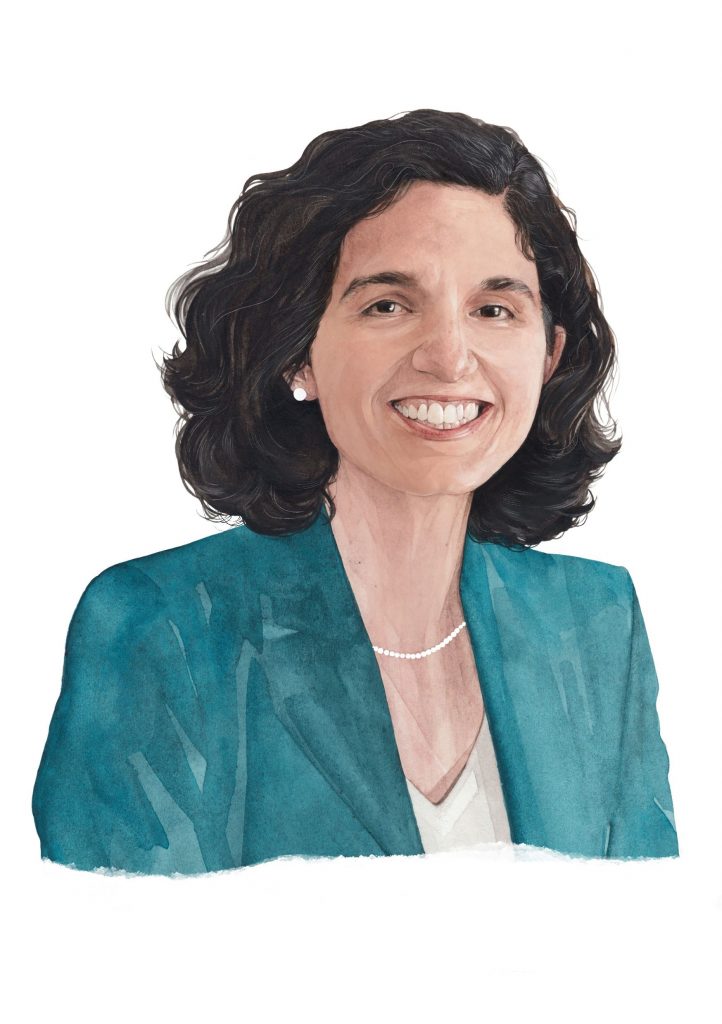Older brains can learn new tricks
Professor Zoe Kourtzi is Head of the Adaptive Brain Lab, an Alan Turing Fellow and a Fellow of Downing.

It is a stubborn cliché that you can’t teach an old brain new tricks – and one that our work at the Adaptive Brain Lab suggests simply isn’t true. It is possible to acquire new skills and abilities well into old age, but the way we learn changes radically throughout our lives. To be effective, training programmes need to be geared to an individual’s age and experience – and this is something that has ramifications in the way we tackle conditions of cognitive impairment such as dementia.
Different circuits in the brain develop and decline at different times. We know a lot about how this works in early life: we can easily see that the approach to learning of a six-year-old is vastly different from that of a 12-year-old. There has been less research into brain development in later life, and there is often a tendency to place all adults in the same category. In reality, cognitive development is lifelong and complex. For example, memory is a mental capacity that starts to deteriorate from a fairly young age. In critical memory centres of the brain, such as the hippocampus, grey matter irreversibly declines from our forties. But what we have discovered is that when trained, older individuals can draw upon alternate parts of the brain and use different cognitive abilities to achieve the same goals.
Rather than trying to train people with cognitive impairment to improve recall (“Where did I put my keys?”), it may be more beneficial to help them think about patterns of behaviour and likely events (“Where is typically a good place to leave my keys?”)
We see this at the Lab when we use computer puzzles to find out how people of different ages solve problems. We generally see two distinct approaches. Some people try to use their memory a lot – so if the game scenario involves navigating an unfamiliar city, they will first attempt to go around a few blocks and memorise their surroundings. Others, by contrast, will look for regular patterns in the environment that repeat over time. They may not have a complete mental map of what’s around them, but will instead learn about things that are more prominent and appear more frequently in the environment. This is an ability that uses different areas of the brain from those concerned with memory – such as the striatum, which is less often affected by dementia. Interestingly, in young age we have the capacity to exploit both of these strategies that are supported by different brain routes. In contrast, in older age – when memorising becomes harder – learning about structure in our surroundings is more helpful for our everyday interactions.
All this provides pointers for the way we approach cognitive impairment. Memory loss is a big issue, and any decline can be hugely disruptive to everyday life, so it is not surprising that a lot of effort has gone in to training programmes to enhance memory.
However, from a biological perspective, that is going against the brain. We may get better outcomes by working on parts of the brain that are still healthy, rather than declining, and have the capacity to be reutilised and repurposed to support our ability to learn. So rather than trying to train people with cognitive impairment to improve recall (“Where did I put my keys?”), it may be more beneficial to help them think about patterns of behaviour and likely events (“Where is typically a good place to leave my keys?”). By strengthening these alternate routes in the brain, they could potentially regain valuable function.
Alongside our work on individuals in the lab, we draw on large databases of clinical data from healthy individuals and patients who have developed symptoms of cognitive decline. With the help of computer scientists, we mine this data to increase our understanding of the critical factors (from genes to environment) that can predict a person’s cognitive capacity across their lifespan. Marrying research strands across biological and physical sciences is at the core of work in our lab and the newly founded Institute for Neuroscience in Cambridge. This work has strong potential to steer clinicians away from a ‘one size fits all’ approach, and to help develop programmes for personalised diagnosis and treatment with the best possible outcomes for individuals.
Professor Kourtzi will become Director of Cambridge’s new interdisciplinary Institute of Neuroscience in Michaelmas Term.



